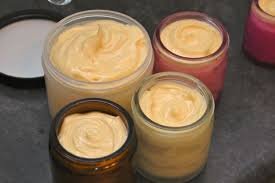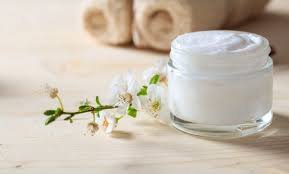When it comes to skincare, many people are turning to organic products thinking they are safer and healthier. Organic creams are often marketed as being free from harmful chemicals, but it’s important to understand that “organic” doesn’t always mean “safe.” Here are some of the dangers that organic creams can pose to your skin:
1. Allergic Reactions
Organic creams are made from natural ingredients like plants, herbs, and essential oils. While these may sound safe, they can cause serious allergic reactions in some people. Common allergens include lavender, chamomile, and tea tree oil. Symptoms of an allergic reaction can range from mild redness and itching to severe swelling and rashes.
2. Skin Irritation
Even if you’re not allergic, some natural ingredients can irritate your skin. Essential oils, for example, are highly concentrated and can be harsh. Ingredients like citrus oils, peppermint, and eucalyptus can cause burning, redness, and peeling, especially if you have sensitive skin.
3. Photosensitivity
Certain natural ingredients can make your skin more sensitive to the sun. Citrus oils like lemon and bergamot can increase your risk of sunburn and long-term sun damage if you use them during the day. This can lead to premature aging and a higher risk of skin cancer.

4. Unproven Benefits
Just because an ingredient is natural doesn’t mean it’s effective. Many organic creams contain ingredients that haven’t been scientifically proven to benefit your skin. You might end up spending a lot of money on a product that doesn’t work as promised, and in the worst case, it could even harm your skin.
5. Lack of Regulation
The term “organic” isn’t strictly regulated in the cosmetics industry. Some products labeled as organic might still contain synthetic chemicals. Without strict regulation, there’s no guarantee that organic creams are safer or more effective than their non-organic counterparts.
6. Shelf Life and Preservation
Natural ingredients can spoil more quickly than synthetic ones. Organic creams often lack strong preservatives, leading to a shorter shelf life. Using a spoiled product can cause infections and other skin problems. Always check the expiration date and store products as recommended.
7. Misleading Marketing
Brands often use terms like “chemical-free” or “all-natural” to make their products sound safe, but everything is made of chemicals, even water. The idea that all chemicals are bad and all natural substances are good is a myth. This misleading marketing can make you think you’re using something completely safe when that might not be the case.
Conclusion
Organic creams can be a good option for some people, but it’s important to remember that natural ingredients can also be powerful and sometimes harmful. Always patch-test new products, read ingredient lists carefully, and consult with a dermatologist if you have concerns about how a product might affect your skin. By staying informed and cautious, you can make better choices for your skincare routine.
Follow for more on www.instagram.com/findwhosabi_official/
